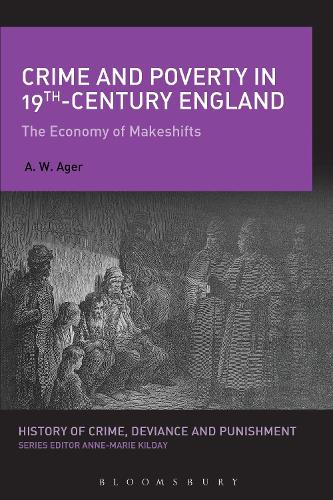
Crime and Poverty in 19th-Century England: The Economy of Makeshifts
(Paperback)
Available Formats
Publishing Details
Crime and Poverty in 19th-Century England: The Economy of Makeshifts
By (Author) A.W. Ager
Bloomsbury Publishing PLC
Bloomsbury Academic
27th August 2015
United Kingdom
Classifications
Tertiary Education
Non Fiction
Causes and prevention of crime
Poverty and precarity
European history
364.256094209034
Physical Properties
Paperback
216
Width 156mm, Height 234mm
304g
Description
It has long been suggested that poverty was responsible for a criminal underclass emerging in Britain during the nineteenth century. Until quite recently, historians did little to challenge this perception. Using innovative quantitative and qualitative data analysis techniques, this book looks in detail at some of the causal factors that motivated the poorer classes to commit crime, or act in ways that transgressed acceptable standards of behaviour. It demonstrates how the strategies that these individuals employed varied between urban and rural environments, and shows how the poor railed against legislative reforms that threatened the solvency of their households. In the process, this book provides the first solid appreciation of the complex relationship between crime and poverty in two distinct socio-economic regions between 1830 and 1885.
Author Bio
A.W. Ager is Associate Lecturer in the Department of History, Philosophy and Religion at Oxford Brookes University, UK.
